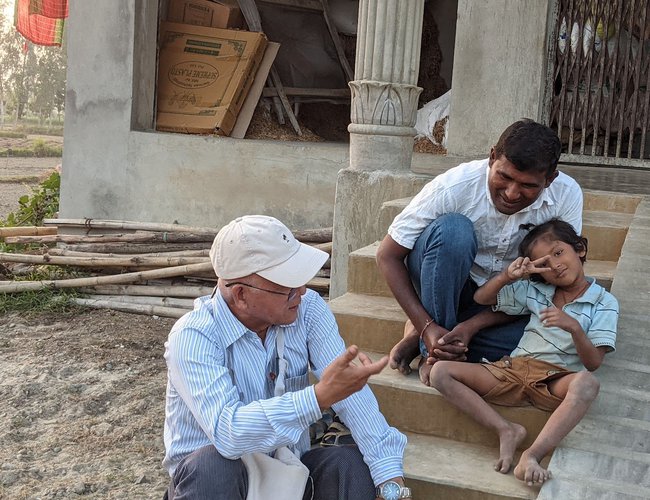
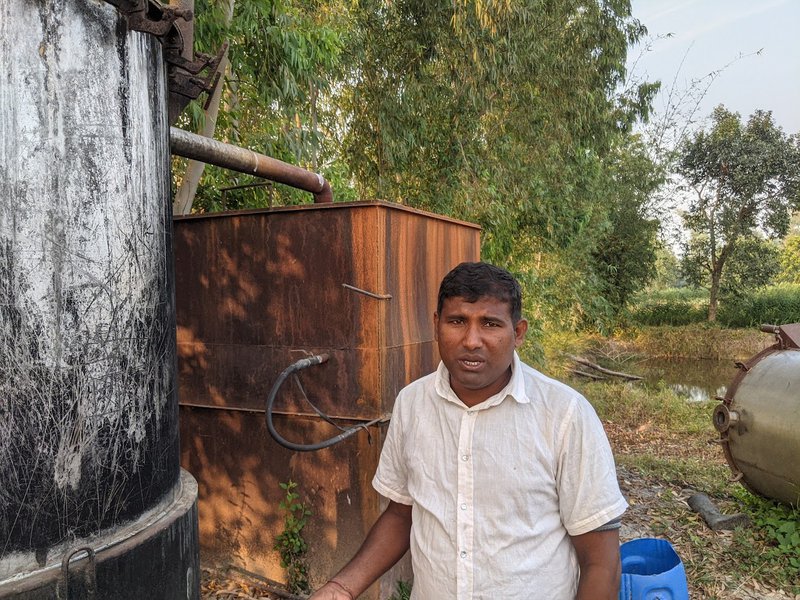
Atma Ram Raya, a 30-year-old resident of Barathawa Municipality Ward No. 4, has demonstrated that pursuing innovative entrepreneurship at home can be far more advantageous than seeking foreign employment abroad. Similar to other young individuals in rural Sarlahi, Roy firmly believed that only foreign employment could lift his family out of the cycle of poverty. It rarely occurred to him that the leaves and trees surrounding his house could serve as more effective sources of employment and entrepreneurial opportunities.
"Indeed, I was on the verge of embarking on foreign employment in Malaysia. If I hadn't crossed paths with an individual from Helvetas Nepal's Elam Project, I wouldn't be in the position I am today," Roy stated. “Our education and social system seldom emphasized innovation and skill development for employment. The family's preference has always been a job, not a business," Roy added. The person I am today is a direct outcome of my encounter with the Elam Project facilitator.
Raya, residing with his family members in his own community, has established a successful career in his hometown by extracting oil from a native leaf.
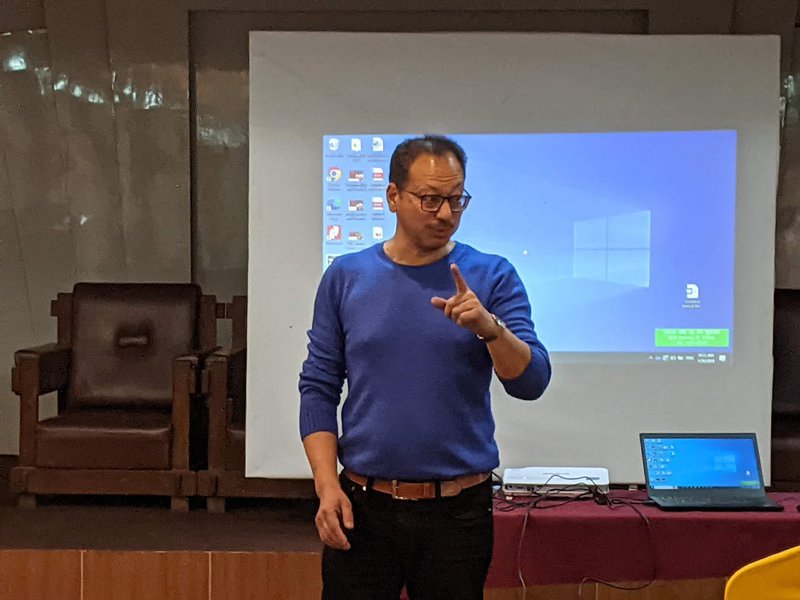
Despite the economic downturn and limited demand for the herbal oil, Raya managed to earn approximately Rs.100,000 ($800) this year and offered employment opportunities to two young individuals from his village.
Through the establishment of an oil processing industry within his locality, Raya has exemplified how young individuals can generate income and generate job opportunities for others by utilizing the abundant forest resources available locally.
In a time where the prospect of establishing new industries that can provide substantial employment opportunities within the country seems bleak, Helvetas Nepal's InElam project has showcased the potential of creating employment at the grassroots level through cottage industries that rely on locally accessible resources such as forest leaves.
The leaf crushing mills have demonstrated the potential of forests as a valuable resource for both the environment and the development of entrepreneurship and employment opportunities. The wood obtained from the forests has been utilized for furniture production, while the leaves of the trees were previously wasted.
However, in Sarlahi, many individuals from Madhesh have embraced entrepreneurship by extracting oils from fallen leaves of aromatic trees such as eucalyptus.
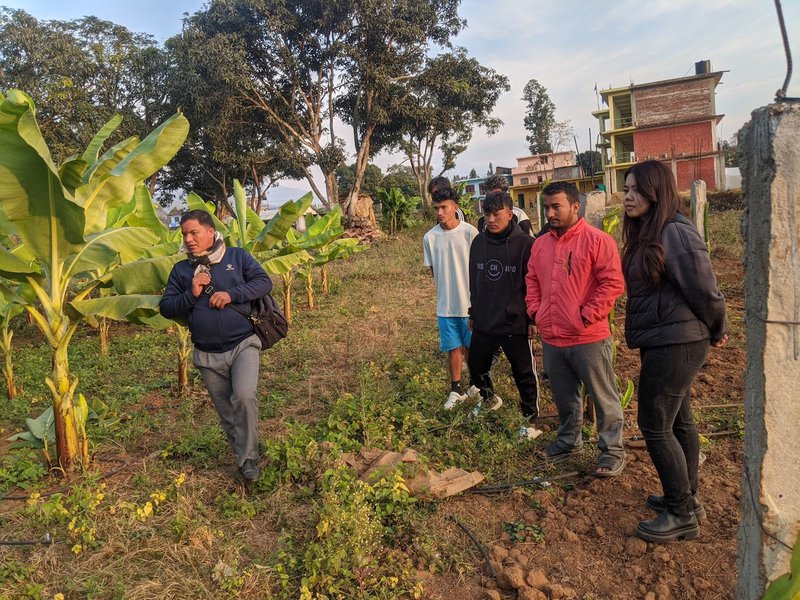
Thanks to the technical assistance provided by Raya, who is also an Enterprise Support Professional (ESP), approximately twenty-four small leaf crushing units are currently operational. These units have created direct employment opportunities for over 450 young individuals.
Raya proudly stated, "I have supported the establishment of twenty-one processing industries. With my own investment and financial assistance from Helvetas Nepal, I have set up these industries in locations where eucalyptus leaves are readily available." Raya has also utilized his own oil refinery as a learning center.
Each processing industry provides employment to 15 to 25 individuals, and these industries operate for approximately 9 to 10 months in a year. This initiative has not only harnessed the potential of forest resources but has also contributed to the economic growth and skill development of the local community.
Market for oil
The eucalyptus leaf oils are utilized in a variety of medicines and cosmetics domestically, as well as being exported in significant quantities worldwide. Raya vends the oil in the local market, while also procuring crude oils from regional producers to distribute in bulk to various factories.
Bhaskar Harbchyatical's chairman, Nikhil Khandenwal, mentioned that their company acquires the oil for manufacturing Suchu, a product beneficial for choking and fatigue. Khandenwal added, "We also have Bhakskar Balm, made from herbs and aromatic oils sourced from Nepal whenever feasible. The resulting oil is in high demand."
In addition to eucalyptus leaves, Nepal boasts numerous plants suitable for herbal oil production. However, dominating the market necessitates utilizing high-value herbs in production and receiving government support for producers.
The extraction of oils from previously discarded leaves has not only generated employment opportunities but has also effectively addressed the issue of wildfires that hindered plant growth.
Sajan Chaudhary, Assistant District Forest Officer in Sarlahi, stated, "We have established processing units in the Sarlahi district to extract oil from fallen leaves. We collect these leaves and extract oil from them."
To the best of my knowledge, this practice has not caused any negative environmental impacts; rather, it has contributed positively by utilizing both trees and leaves.
Additionally, Raya, an advocate for the cultivation of lemon grass and other valuable herbal plants, mentioned, "Not only leaves from the forest, but oils are also produced from other herbal plants such as lemon grass and mint, which are being commercially cultivated."
Raya expressed her confidence in the existence of a significant market both domestically and internationally, despite the decrease in demand and price of oil this year. She emphasized the importance of focusing on the quality of processing. Helvetas Nepal, in collaboration with local entrepreneurs like Roy, is setting an example for the development of entrepreneurship.
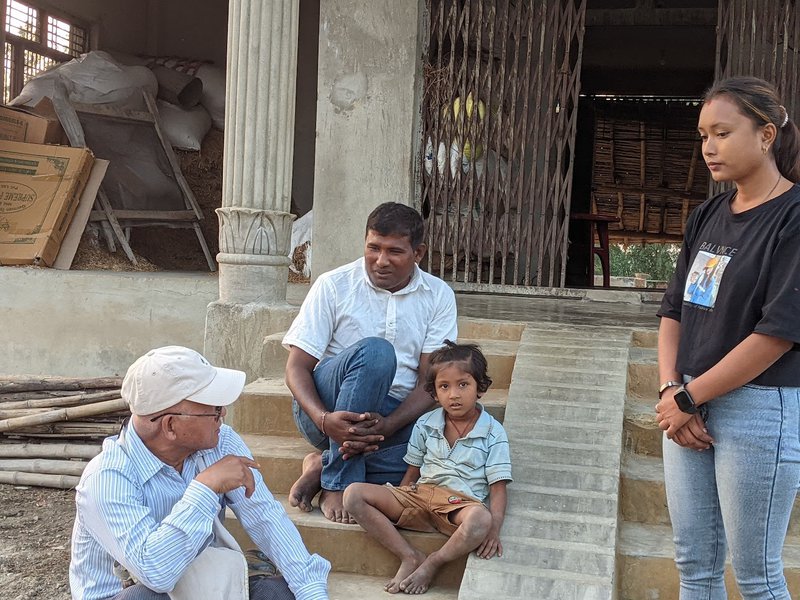
Hari Gurung, the Program Manager of the InElam Project, highlighted the project's close partnership with the local government, private sector, cooperatives, and youth entrepreneurs like Roy to create employment opportunities and promote local innovation.
Among various initiatives aimed at generating employment and improving the lives of the underprivileged, Helvetas Nepal's InElam project stands out as a distinctive endeavor that supports local initiatives and promotes enterprise development at the grassroots level, utilizing locally available resources.
Akriti Rana from Helvetas Nepal explains that the InElam project is working closely with the local community, entrepreneurs, agricultural cooperatives, and youth in Karnali and Madhesh Pradesh to create employment opportunities. One of the success stories is Raya, who gave up his dream of working abroad and instead underwent ESP training to become an entrepreneur.
Raya has established his own factory that sells and produces oil and seedlings, while also transforming the farm into a demonstration center.
In Madhesh provinces, numerous individuals are becoming entrepreneurs by producing oils from fallen leaves of aromatic trees like eucalyptus. With support from Helvetas' InElam and his own investment, Raya has set up 24 processing industries in areas where eucalyptus leaves are abundant, as stated by Atma Ram Raya, an entrepreneurial herbal seed oil refiner.
The utilization of valuable herbs in production, coupled with government support, has not only generated employment but also addressed the issue of forest fires that hindered plant growth.
This initiative extends beyond forest leaves to include other herbal plants like lemongrass and menthe, enabling commercial cultivation of flora. Raya, for instance, has already established a nursery for lemongrass production.
InElam has exemplified the potential for small-scale employment creation through local resource mobilization in Madhesh province, offering an alternative to the migration of youth in search of employment opportunities abroad, particularly in the Gulf region.

Keshab Poudel
Poudel is the editor of New Spotlight Magazine.
- ERC Nepal Is Focused On Expanding Distribution And Transmission To The Private Sector: ERC Chair Dr. Dhital
- Jul 06, 2025
- FOURTH PROFESSOR Y.N. KHANAL LECTURE: Nepal-China Relations
- Jun 23, 2025
- Colonel JP CROSS: Centenary Birthday
- Jun 23, 2025
- BEEN: Retrofitted For Green
- May 28, 2025
- GGGI has been promoting green growth in Nepal for a decade: Dr. Malle Fofana
- May 21, 2025















